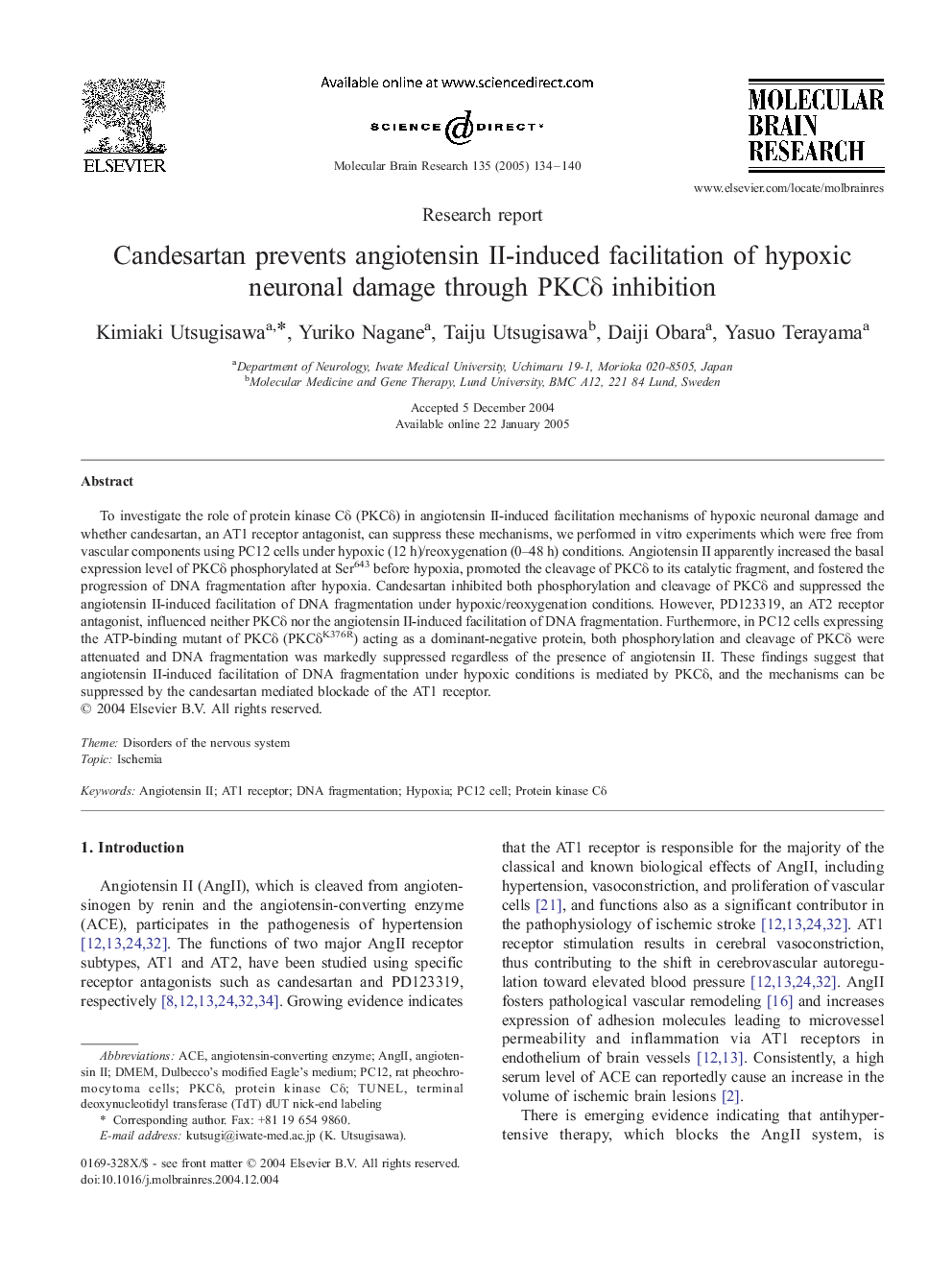| Article ID | Journal | Published Year | Pages | File Type |
|---|---|---|---|---|
| 9410674 | Molecular Brain Research | 2005 | 7 Pages |
Abstract
To investigate the role of protein kinase Cδ (PKCδ) in angiotensin II-induced facilitation mechanisms of hypoxic neuronal damage and whether candesartan, an AT1 receptor antagonist, can suppress these mechanisms, we performed in vitro experiments which were free from vascular components using PC12 cells under hypoxic (12 h)/reoxygenation (0-48 h) conditions. Angiotensin II apparently increased the basal expression level of PKCδ phosphorylated at Ser643 before hypoxia, promoted the cleavage of PKCδ to its catalytic fragment, and fostered the progression of DNA fragmentation after hypoxia. Candesartan inhibited both phosphorylation and cleavage of PKCδ and suppressed the angiotensin II-induced facilitation of DNA fragmentation under hypoxic/reoxygenation conditions. However, PD123319, an AT2 receptor antagonist, influenced neither PKCδ nor the angiotensin II-induced facilitation of DNA fragmentation. Furthermore, in PC12 cells expressing the ATP-binding mutant of PKCδ (PKCδK376R) acting as a dominant-negative protein, both phosphorylation and cleavage of PKCδ were attenuated and DNA fragmentation was markedly suppressed regardless of the presence of angiotensin II. These findings suggest that angiotensin II-induced facilitation of DNA fragmentation under hypoxic conditions is mediated by PKCδ, and the mechanisms can be suppressed by the candesartan mediated blockade of the AT1 receptor.
Keywords
Related Topics
Life Sciences
Neuroscience
Cellular and Molecular Neuroscience
Authors
Kimiaki Utsugisawa, Yuriko Nagane, Taiju Utsugisawa, Daiji Obara, Yasuo Terayama,
